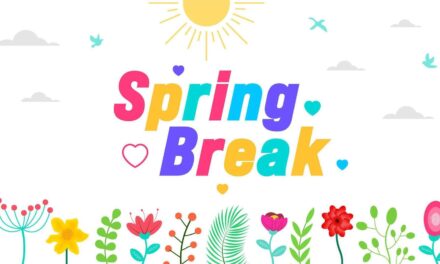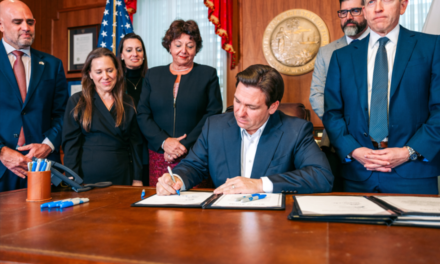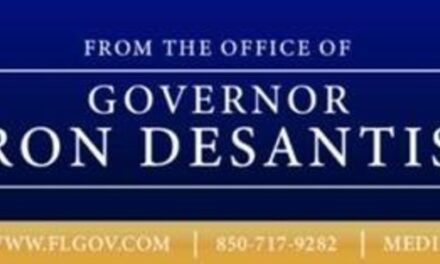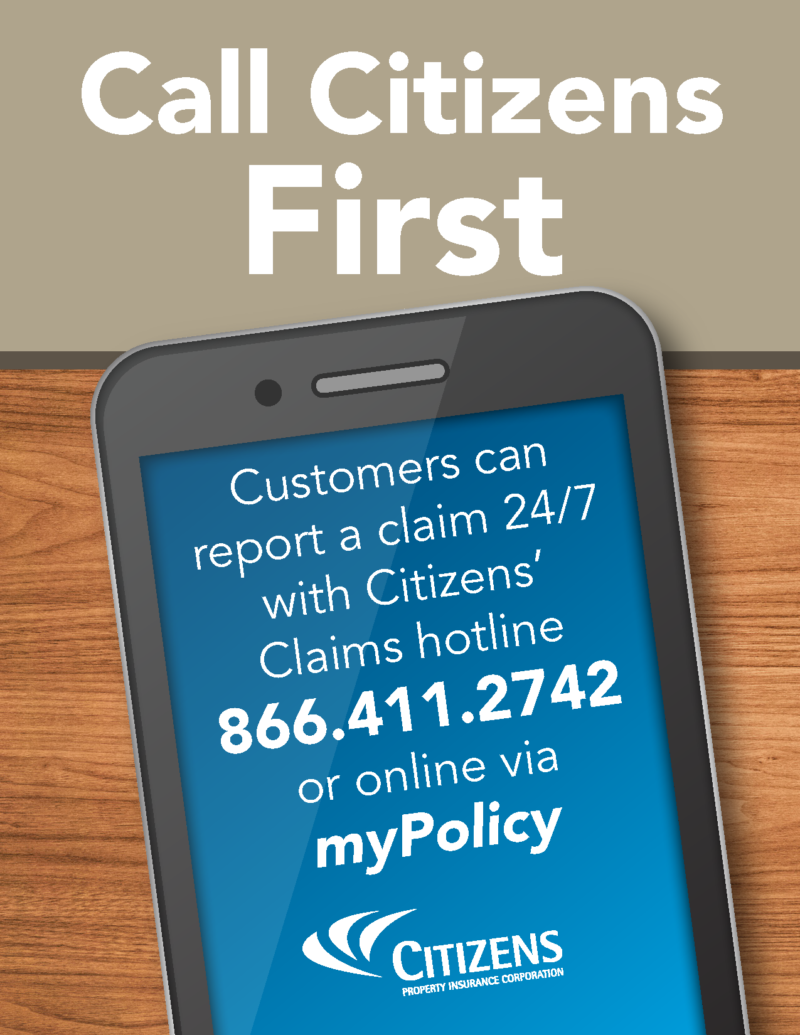
Sunshine Budget Shines Bright on Florida’s Future

Governor Ron DeSantis Announces the Focus on Florida’s Future Budget Recommendations for Fiscal Year 2024–2025
TALLAHASSEE, Fla.— Governor Ron DeSantis announced his Focus on Florida’s Future budget proposal for Fiscal Year (FY) 2024–2025. The Focus on Florida’s Future Budget totals $114.4 billion, more than $4.6 billion less than the current year budget, with $16.3 billion in reserves, leaving ample resources for any unforeseen economic issues. Florida has experienced record success over the last five years, ranking #1 in education, net in-migration, entrepreneurship, and new business formations, with 2.7 million new businesses formed since 2019. The Governor’s Budget also continues Florida’s record as the nation-leading example of success through fiscal conservatism by paying down an additional $455 million in debt and providing $1.1 billion in tax relief.
“Success is not something that is handed to a state as large as Florida, it requires a steadfast commitment to supporting families at every step,” said Governor Ron DeSantis. “By expanding workforce education for high-demand jobs, providing family-first tax relief, ensuring that Florida’s students can access a quality education that fits their needs, investing in resilient infrastructure and putting conservative principles at the forefront of every decision, we have delivered time and again for our residents. Florida’s success is proof positive that when you establish a foundation of governing on conservative principles and protect the freedom of your residents, success will follow. I look forward to seeing what we can accomplish over the next year.”
- A one-year exemption on taxes, fees and assessments for Homeowners Insurance Policies, saving taxpayers $409 million and decreasing the average insurance premium by up to 5%.
- A permanent exemption on Flood Insurance Policies, saving taxpayers $22 million over the year.
- A permanent sales tax exemption on over-the-counter pet medications, saving Florida families $37 million and helping keep our family pets healthy.
- A tax credit for businesses that employ Floridians with unique abilities, saving these businesses $5 million annually.
- Two Back-to-School sales tax holidays, one in the fall and one in the spring. This will save Florida families $169 million on school supplies, clothing and computers.
- Two Disaster Preparedness sales tax holidays, saving Floridians $49 million on supplies needed during disasters.
- A three-month Freedom Summer sales tax holiday, saving Florida families more than $241 million on outdoor recreation items to entertain the kids during the summer.
- A 7-day Tool Time sales tax holiday, saving skilled workers more than $16 million on tools they need for work.
- An increase of the sales tax collection allowance to save small businesses $165 million.
- $107 million in annual funding to make the My Safe Florida Home Grant Program permanent and continue assisting Florida homeowners through home inspections and cost sharing for approved home hardening and wind mitigation programs to reduce premiums and make properties less vulnerable to hurricane damage. This investment follows additional funding provided during the recent Special Session and is especially important as Floridians are recovering following hurricanes Ian, Nicole and Idalia.
- $1.1 million in funding to bolster the Florida Office of Insurance Regulation’s (OIR) ability to curate data related to Florida’s property insurance market.
- $675,000 to contract for independent reinsurance and mitigation research experts to bolster OIR’s ability to review filings and recommend new tools to mitigate properties from hurricanes.
- $1.25 billion to provide salary increases for teachers and other instructional personnel, an increase of $200.6 million over FY 2023-2024.
- $1.6 billion for early childhood education, including $450 million for voluntary pre-kindergarten programs.
- $290 million for the Safe Schools Initiatives, an increase of $40 million over FY 2023-2024.
- $52.8 million to support civics engagement programs, including $45 million for the Florida Civics Seal of Excellence Program.
- $1.7 billion for the Florida College System.
- $3.7 billion for the State University System.
- $150 million for recruitment and retention of quality faculty at our state colleges and universities.
- $152 million for Florida’s Historically Black Colleges and Universities, including $10 million for HBCU facility hardening to prevent anyone from targeting HBCUs with violence.
- $125 million for nursing education programs to help address nursing vacancies.
- $35 million for the Open-Door Grant Program to support workforce education programs operated by school districts and state colleges.
- $20 million for the Governor’s Pathways to Career Opportunities Grant Program to support pre-apprenticeship and apprenticeship programs for high school and college students.
- $14.5 billion for the state transportation work program to construct and maintain Florida’s transportation network.
- $630 million for the 2nd phase of the Moving Florida Forward Initiative, expediting 20 projects to relieve traffic congestion.
- $75 million for Florida’s ports, logistics centers and fuel pipelines, including vertiport development.
- $25 million to expand the Truck Parking Improvement Program to increase the number of parking spots available in Florida to cargo- hauling large trucks.
- $100 million for the Job Growth Grant Fund to support local infrastructure and workforce training projects.
- $105 million to continue marketing efforts through VISIT FLORIDA.
- $175.2 million for the State Small Business Credit Initiative, providing small businesses with access to capital to grow their business.
- $25 million for the Rural Infrastructure Fund to support local infrastructure projects that help attract jobs.
- $100 million to expand broadband internet access in rural communities.
- $88.1 million for the Small County Outreach Program to assist small county governments in repairing infrastructure.
- $208.6 million for the State Housing Initiatives Partnership (SHIP) program.
- $89.5 million for the State Apartment Incentive Loan (SAIL) program.
- $100 million for the third year of the Hometown Heroes Housing program to provide down payment and closing cost assistance for first time homebuyers.
- $20 million for the third year of the Law Enforcement Recruitment Bonus Program, which provides a signing bonus of up to $5,000 for those hired as first-time law enforcement officers in Florida.
- $7 million for the Defense Infrastructure Grant Program, which provides funding for infrastructure projects that make a positive impact on the military value of installations within the state.
- $3 million of increased funding for the Florida Defense Support Task Force, which supports the Florida defense industry by awarding grants and guiding the future of military installation operations in the state.
- $2.2 million of increased funding for the Military Base Protection Program, which helps secure non-conservation lands to serve as a buffer protecting military installations from encroachment and supports local community efforts to engage in service partnerships with military installations.
- $550 million for the Comprehensive Everglades Restoration Plan (CERP).
- $64 million for the EAA Reservoir to continue the momentum of this critical project to reduce harmful discharges and help send more clean water south of the Everglades.
- $50 million is included for specific project components designed to achieve the greatest reductions in harmful discharges to the Caloosahatchee and St. Lucie Estuaries.
- $81.5 million is included for the Northern Everglades and Estuaries Protection Program.
- $3 million for the Florida Fish and Wildlife Conservation Commission to remove pythons from the Everglades.
- $135 million for the expanded Water Quality Improvement Grant Program for projects to construct, upgrade or expand wastewater facilities, including septic to sewer conversions, stormwater management projects and agricultural nutrient reduction projects.
- $100 million for the Indian River Lagoon (IRL) Protection Program for priority projects to improve water quality in the IRL, as called for in Executive Order 23-06.
- $50 million to accelerate projects to meet scientific nutrient reduction goals, called Total Maximum Daily Loads.
- $20 million for critical infrastructure including wastewater and stormwater projects that address water quality impairments and coral reef restoration in Biscayne Bay.
- $25 million for water quality improvements in the Caloosahatchee River watershed.
- More than $294 million to support behavioral health services, including enhanced mobile response services, collaboration between primary care and behavioral health providers to support crisis diversion and avoid high-cost acute care and additional support for mental health treatment facilities, competency restoration services, and enhancements to the suicide hotline services.
- More than $150 million from the nationwide opioid settlement to continue support for the Office of Opioid Recovery, an accredited Graduate Medical Education program to increase the number of psychiatric residents, and for other initiatives that support education, treatment, and prevention for individuals with substance use disorders.
- $31.8 million to continue expansion of the CORE Network across the state, which has already served thousands of Floridians.
- More than $232 million in funding for cancer research, including $60 million, a 200% increase over FY 2023-2024, for the Florida Cancer Innovation Fund that supports groundbreaking cancer research stemming from emerging ideas, trends, and promising practices that can be replicated and expanded upon in Florida.
- $127.5 million for the Casey DeSantis Cancer Research Program.
- Increased funding of $447 million to support the care of pregnant women and children. This will help to improve access to obstetric care for pregnant women and to support care for seriously ill children and babies.
- More than $103 million to support those served by the child welfare system. Funding will support foster parents and caregivers, community-based services, local prevention grants, and additional family navigators to connect high risk families and children to resources and supports through collaboration with front line child protective investigators.
- An increase of $13.5 million, for adoption subsidies to provide continued support to those who have adopted children from the child welfare system.
- $9.8 million to expand the existing program that provides adoption incentives to groups that include state employees, school district personnel, and law enforcement officers.
- $6 million to provide additional services for victims of human trafficking. The funds will support housing for additional survivors to support their recovery.
- $6 million to serve additional seniors as part of the Alzheimer’s Disease Initiative.
- More than $2 million in additional funding for the Florida Alzheimer’s Center of Excellence.
- $15 million is provided to increase services through the Community Care for the Elderly Program and the Home Care for the Elderly Program. Funding will provide additional support for seniors at risk for out of home placement.
The Governor’s Budget invests an additional $8.9 million to support additional equipment and capital improvements for the State Veterans’ Nursing Homes. The budget also includes $102 million to begin the construction of the ninth State Veterans’ Nursing Home in Collier County upon federal grant approval. Additionally, $2 million is recommended to assist veterans in securing meaningful skills-based employment, provide employers with a skilled talent pipeline, and assist veterans in creating and operating a small business.
Angela Small
Radio Production Assistant













